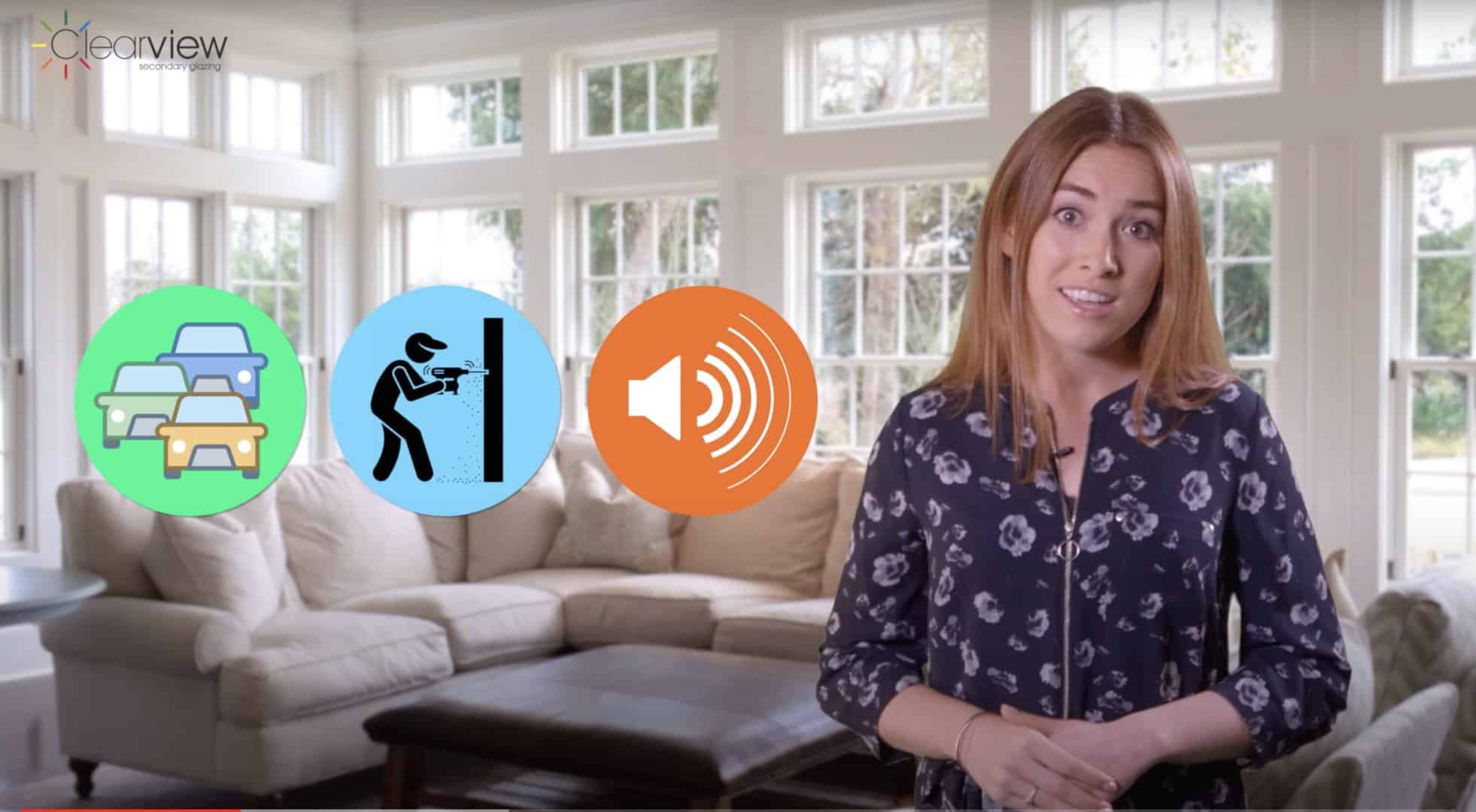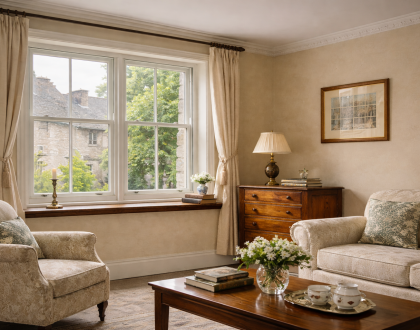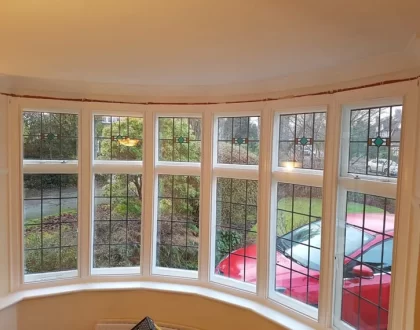Soundproofing What’s Best?

Achieving Optimal Soundproofing with Secondary Glazing
Secondary glazing can drastically reduce noise levels for properties that have single, double, or triple glazing. Noise-reducing secondary glazing can block external noise pollution by as much as 80% which is the equivalent of 54dB.
But how do you get the best soundproofing results? Check out our top tips.
Tip 1: The air gap
Fit the unit to create as much space as possible between the existing glass and the new secondary glass
- This is subject to window design, so use whatever is available.
- A 50mm increase in air gap can provide an extra 25% performance.
- If you compromise the gap for appearance preferences, you will compromise the performance and return on investment.
- The gap becomes optimised at 200mm or more, if you haven’t got this much space (many properties haven’t), you can compensate for some of this with a thicker Heavier Glass.
Tip 2: The glass
This is important but not as much as the air-gap, the thicker and heavier the glass, the harder the sound energy has to work to get through the structure, dissipating the sound levels.
- You can get excellent results with just a 4mm glass, with an air gap of 150mm you can achieve a 48dB sound reduction.
- We do recommend starting with at least a 6mm glass, this is 50% thicker and works well particularly if being used in conjunction with Double Glazing, where a 50dB sound reduction can be achieved.
- As the thickness of glass increases or Acoustic glass is applied, the performance will certainly increase, but only by small amounts, even if a 10.8mm glass is introduced it is unlikely you will achieve much more than a 54dB level. This would represent circa 80% of the noise being eliminated through the fenestration.
Tip 3: Understanding decibels
If you can reduce the level of decibels entering a room by 3dB, this is equivalent to halving the sound energy, however, the average human ear would normally consider 10 decibels as halving the amount of noise being heard. Relatively standard double glazing can reduce noise by around 35dB, possibly reaching the low 40dB levels with costly glass combinations. We often receive enquiries when windows have been replaced, but the performance hasn’t materialised, Secondary Glazing is far superior at reducing sound levels.
Tip 4: The price
The thicker the glass or using acoustic glass notably increases the price as more material and weight is being used and transported. Do not be put off if you find an acoustic glass too expensive as the name can be more impressive than the results, it will certainly perform better than a non-acoustic glass, but the amounts can be small. So, psychology is at play, consider these points.
How much of a problem is the noise to you on a score of 1 to 10
1 = aware of the noise, but it’s not a major issuIt’s = it’s distracting at times and would be nice to turn it down.
10 = it’s a nightmare and causing health issues/sleeping problems/ problems at work etc.
If you fit into category 1 to 5, you should be delighted with a 6mm glass option.
From categories 5 to 10, the higher the ranking, the more likely you will feel better by choosing a thicker or acoustic glass option.
Using our FastQuote Modify pricing tool, you can select and compare all glass types, as the performance levels only change by small degrees, select the option most affordable to your budget.
Choosing a lower cost lighter weight system to gain an acoustic glass specification is a poor investment. A good quality sturdy system with well sealing interlocking panels with a 6mm glass can outperform a lightweight system with acoustic glass.
Soundproofing is a subjective area, the same specification of product can perform differently in different locations as there are many variables and influencing factors, our performance data whilst proven is for illustration purposes only.
Watch our advice video
Watch our performance video
In conclusion, secondary glazing presents a highly effective solution for those seeking to enhance the soundproofing of their property. By understanding and applying the key factors such as optimising the air gap, selecting the appropriate glass thickness, and considering the specific needs of your space, you can achieve a significant reduction in noise levels. Whether you’re dealing with the hustle and bustle of city life or simply seeking a quieter, more serene living environment, secondary glazing offers a practical and cost-effective solution.
Visit our product page to explore our range of secondary glazing options and start enjoying the benefits of a quieter, more comfortable space today.
Recommended Posts

How can I stop condensation?
06/02/2024


